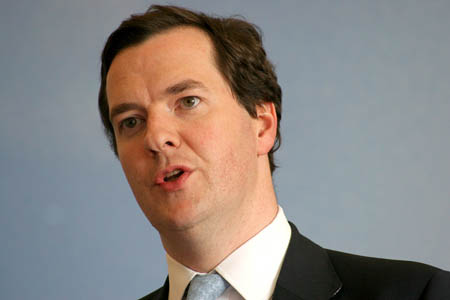Local authorities and the Department for the Environment, Food and Rural Affairs all came out big losers in today’s announcement of the results of the comprehensive spending review by Chancellor George Osborne.
And Britain’s biggest walkers’ charity said the cuts risked closing the countryside to future generations of walkers.
Defra, which oversees bodies such as Natural England, has been told to shoulder spending reductions of up to 34 per cent on its capital budgets and 29 per cent on resources. England’s national parks had already been told to rein in spending by five per cent, but it is likely Defra’s belt tightening will see further cuts to the bodies.
And local authorities, which are responsible for the countryside’s rights of way network will see their central government grant reduced by 27 per cent.
Baroness Margaret Eaton, chairman of the Local Government Association and a former Tory leader of Bradford Council said: “This spending review will hit councils and the residents they serve very hard and will inevitably lead to cuts at the front line.
“These are some of the biggest cuts in the public sector and we have to be honest about their impact.
“Town halls will now face extremely tough choices about which services they can keep on running. These cuts will cause real pain and anxiety for millions of people who use the services councils provide, from keeping children safe to ensuring that streets are clean.
“Councils will do all they can to minimise the effect of these cuts and will build on their record of delivering new and better ways of doing things in order to keep public services running in these tough times. But savings on this scale are bound to hit services upon which people rely.”
And the Ramblers predicted a return to the ‘forbidden Britain’ of the 1960s when, they said, accessing the countryside was often more of a challenge than a pleasure.
A Ramblers spokesperson said: “Cuts to Defra and local authority budgets will mean that well-loved walking routes and popular tourist destinations will quickly fall into disrepair and disuse – blocking future generations from discovering and enjoying the British countryside.
“These short-termist cuts will cause further damage to already fragile rural economies. Research tells us that around £7.3bn was spent on visits to the countryside last year, a figure which could drop dramatically if popular walking destinations fall into disrepair.”
And chief executive Tom Franklin added: “Millions of people are going to be affected by today’s announcement, in all sorts of difficult ways and we understand that together we face some tough times ahead. However, walking has always been a simple pleasure, a free activity that any family can do, even when money is tight.
“When today’s cuts take effect at a local level, walking in the countryside will be taken back 50 years, to a time when you were lucky to be able to reach the end of a path without difficulty. We urge local councils to safeguard this essential and cost-effective service before we close off the countryside and deny an entire generation one of life’s free joys.
“Britain is indeed facing sad times when a short walk in the countryside becomes a challenge.”
Chancellor George Osborne told the Commons Britain had a structural deficit of £109bn and that economic stability depended on allaying the world’s fears about the UK’s high deficits.
There was disappointment too for mountain rescue teams who might have held out a glimmer of hope for a VAT refund in the comprehensive spending review.
In July, Westmorland and Lonsdale Liberal Democrat MP Tim Farron said he remained upbeat he could persuade his ministers to help mountain rescuers, through the spending review.
He said, although the review would be viewed widely as an exercise in slashing public expenditure to cut the fiscal deficit, he hoped the review will see some relief for MRTs. He told grough at the time: “I spoke to all the Treasury team: George Osborne, Danny Alexander and David Gauke,” he said. “This is being considered in the spending review. It is better considered as a separate item.”
“I am pretty confident we are talking about a refund of the amount equivalent to the cost of VAT and vehicle fuel duty to the teams.
“They are going to do it properly, not in a knee-jerk way. David Alexander is very keen on helping mountain rescue teams. Although the public sector spending review is mainly about saving money, there will be some released for projects.
“If I was a betting man I would put money on getting a refund by October but we have to keep fighting. Mountain rescue should be very encouraged. You can be absolutely sure I will fight tooth and nail for this.”
However, today Mr Farron said he was still working for a resolution of the VAT issue for the teams, which sees them paying about £250,000 to the Treasury each year.
“I have had very positive discussions with ministers about refunding the VAT in England and Wales and I am very hopeful for the future,” the MP said.
“I suspect it will be done by the stroke of a pen in the Treasury. It’s not a big amount and that way, it wouldn’t need legislation.
“I am hopeful this can be done within a matter of weeks.”
